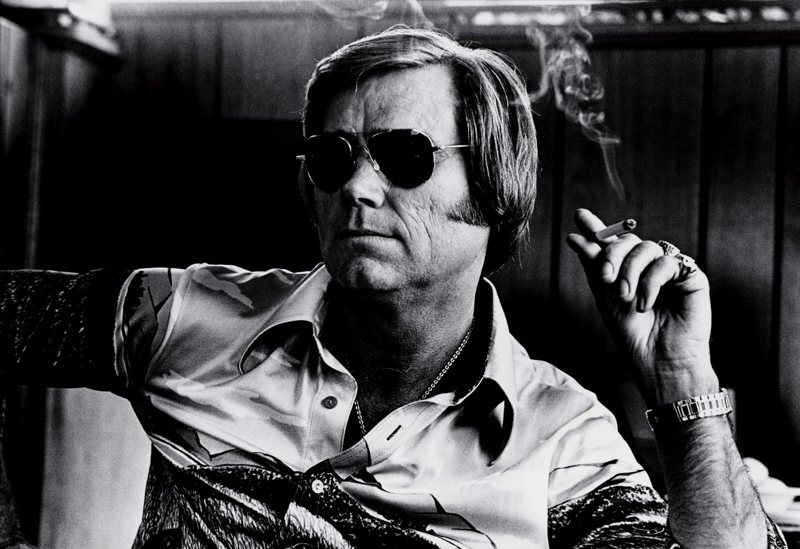
The stab of loneliness, sharp and painful that I may never shake
George Jones (1931-2013)
James Mann
Like a lot of my Atlanta contemporaries, I was introduced to the music of George Jones at 1 am on a Monday night by the great Rick Richards of The Georgia Satellites. The bands run at Hedgens has become legendary in the retelling, and for those of us that were there, the image of Rick, Winston cigarette smoldering forgotten in his Les Paul Jr. headstock while he sang the “The Race Is On” will never fade.

“I feel tears wellin’ up cold and deep inside Like my heart’s sprung a big break And the stab of loneliness, sharp and painful That I may never shake
Growing up in the suburbs of Atlanta in the ’60s and ’70s meant, at least in my world, that you didn’t listen to country music. My house was filled with the maudlin, old folks music of Frank Sinatra, so far removed from my teenage sensibilities as to be completely foreign to my life. Country music was even worse; it was the music that rednecks listened to, and my peer group and I were loathe to do anything that smacked of that. At that age you weren’t proud of being a southerner, in fact you were barely cognizant of it at all. So when the Satellites sang a George Jones song, it didn’t resonate beyond the moment, any more so than their spirited NRBQ or Beatles covers. It was good drinking music, and for a 20-something club goer, that was enough.
Then my world fell apart. The details aren’t material to anyone but me, everyone has their story – but somewhere along the way I started to find myself identifying with lyrics such as these:
One day I had ventured in love, never once suspecting What the final results would be How I lived in fear of waking up each morning And finding that you’d gone from me
Somewhere along the way country music moved from redneck novelty to the soundtrack of my life. I found something in the words I could relate (painfully) to. And in that time, no one spoke to me in quite the same way as George Jones. When George sang it was without pretension, that great well of emotion that was his voice seemed to be an almost physical presence as you sat in your dirty, lonely house drinking grocery store wine and feeling pity for yourself. Lots of people claim to “not get” country music, and I understand, somewhat. Until you’ve been there – until you can stare at a telephone that never rings night after night, and the silence seems engulfing when the music stops, you’ll never “get” the utter desperation that is this:
I can hardly bear the sight of lipstick On the cigarettes there in the ashtray Lyin’ cold the way you left them At least your lips caressed them while you packed And a lip print on a half-filled cup of coffee That you poured and didn’t drink But at least you thought you wanted it That’s so much more than I can say for me “A Good Year For The Roses” George Jones
George Jones led a troubled life, in many ways. That’s why his music is honest. It doesn’t shy away from pain, it embraces it. I don’t know if George read Nietzsche – I wager not – but he certainly understood that “what doesn’t kill me makes me stronger.” His life was a testament to that, a life on the brink, redeemed. All he could do was sing about it. A good artist tells you about themselves in their songs, but a great one – and George Jones was a very, very great artist – tells you about you.
Thanks George. I, and millions like me, couldn’t have done it without you. ◼












